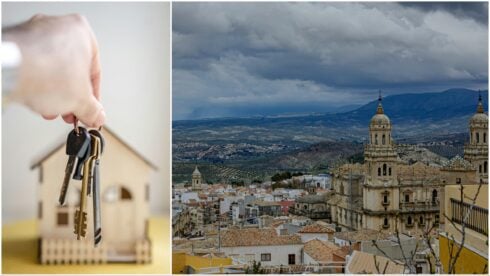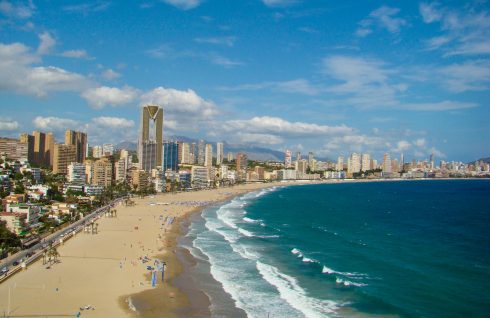FIFA, the international governing body for football, yesterday announced that it had chosen Spain as host for the 2030 World Cup. But there’s a catch: games will be played in a total of six countries, on three different continents.
Here is all you need to know about the decision, which took many by surprise.
Who are the hosts?
For the first time ever, Fifa has selected a total of six countries for the 48-team tournament. The opening three matches will be played in Uruguay, Argentina and Paraguay. Spain, Morocco and Portugal, meanwhile, will be the hosts for the remaining matches.
When and why was the decision taken?
The proposal was agreed on Wednesday after a virtual meeting of Fifa’s council. It will still need to be confirmed by a vote by all of the governing body’s members toward the end of next year, but this is expected to be a formality.
The inclusion of Uruguay allows for the opening game to be held in that country’s capital, Uruguay. It was at that city’s Centenario Stadium that the inaugural World Cup final was hosted back in 1930. This fixture is a way of celebrating 100 years of the tournament.
Argentina, Paraguay and Uruguay had all previously presented a co-hosting bid, as a rival to the Spain-Portugal-Morocco proposal. The latter idea had begun as a partnership between Spain and Portugal, before the North African country was included in the plan earlier this year.
Is this the first time Spain has hosted the World Cup?
No, the country was home to the men’s tournament back in 1982. The tournament was won by Italy at a final played against West Germany in Real Madrid’s Santiago Bernabeu stadium.

What has Fifa said about the plan?
“In 2030, we will have a unique global footprint, three continents – Africa, Europe and South America – six countries – Argentina, Morocco, Paraguay, Portugal, Spain and Uruguay – welcoming and uniting the world while celebrating together the beautiful game, the centenary and the FIFA World Cup,” said Fifa president Gianni Infantino in a statement reported by news agency AP.
Did the Luis Rubiales scandal endanger the bid?
The controversy sparked in August by the then-Football Federation chairman Luis Rubiales at the women’s World Cup final in Australia had raised fears that Spain’s bid for the tournament could be damaged. Rubiales sparked an international outcry when he forcibly kissed female player Jenni Hermoso after Spain’s victory against England. He has, however, since been suspended by Fifa from his role and eventually quit as the pressure mounted against him.
Even the president of Spain’s CSD sports council, Victor Francos, admitted a month ago that the situation had changed due to the scandal, Spanish daily El Pais reported.
And Spain’s caretaker prime minister, Pedro Sanchez of the Socialist Party, had also expressed his concerns that Rubiales could derail the bid if he were not to quit.
But the country has still been successful with its joint bid, albeit having to cede the first three games to the aforementioned South American countries.

Where will the games be played?
The venues for each stage of the tournament are yet to be announced, as well as their distribution among the three main host countries. This is information that is unlikely to be made public for some time, according to press reports. The venues for the 2026 World Cup, which will be played across the United States, Mexico and Canada, were only announced recently.
What does the decision mean for the 2034 tournament?
The choice of these countries for 2030 opens the way for bids from Asia and Oceania for 2034. Saudi Arabia is expected to put in a bid alone for that tournament, as well as Australia and possibly Indonesia. The Saudis are considered favourites, not least thanks to the billions of dollars they are spending on the sport through a public investment fund, The Guardian reports.
Another knock-on effect of these candidacies is that the 2034 tournament is likely to be played in winter, as was the case in Qatar last year.
What has been the reaction?
Spain’s caretaker prime minister, Pedro Sanchez of the Socialist Party, welcomed the decision on Wednesday.
“We will show the strength of our country as champions of the men’s and women’s world titles, and we will defend the values of equality, solidarity and fair play that should always be present in sports,” he wrote on social network X (formerly Twitter), in reference to the Spain men’s team’s World Cup victory in 2010 and the women’s team’s win this year in Australia.
There are also environmental concerns over the plan.
“We’re worried by this announcement and how it will be delivered in line with their targets and international targets around driving down emissions,” said Freddie Daley of the New Weather Institute, an organisation that is behind a challenge for the World Cup to become carbon neutral.
The decision was also met with concern from fans.
“FIFA continues its cycle of destruction against the greatest tournament on earth,” Football Supporters Europe, the fan group officially recognized by European soccer body UEFA, said in a statement reported by AP. “Horrendous for supporters, disregards the environment and rolls the red carpet out to a host for 2034 with an appalling human rights record.”
Read more:
- Spain’s women’s football team stands firm and upholds decision not to play
- Disgraced ex-Football Federation chairman Luis Rubiales did ask permission for Jenni Hermoso kiss, expert witnesses tell court
- Spain clinch dramatic winner to make it to women’s World Cup final
Click here to read more News from The Olive Press.








